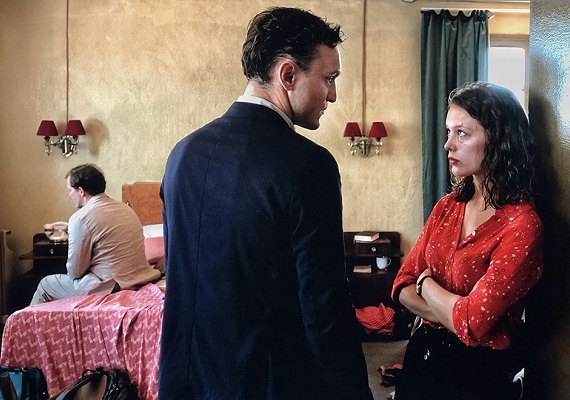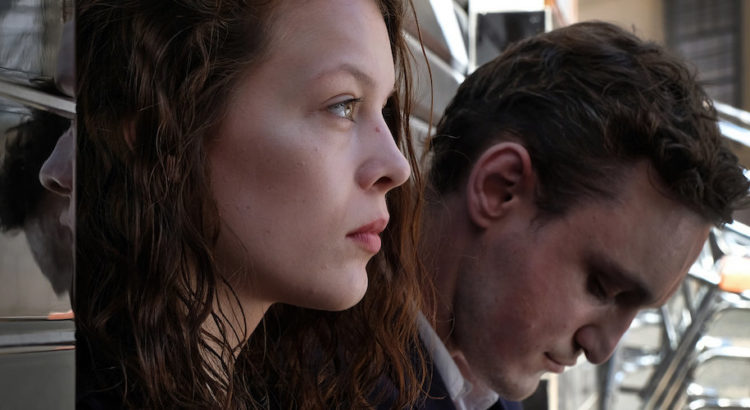Christian’s Petzold’s Transit is a sprawling, moral adventure that examines questions of loyalty, morality, and the modern global order in the face of fascism. Set primarily in the French seaside town of Marseille, the background to the drama is a façade of gorgeous pastel storefronts that police vans race past in a flurry of sound and light. The setting is noticeably modern; the outfits chosen by the characters, the ships in the harbor, the vehicles in the streets all clearly belong to the modern era, and it’s also clear that Petzold wants it that way. The ambiguity of eras is only one part of the ambiguity that Petzold has carefully constructed for his film, as he places grand amounts of trust in the viewer to think critically about and understand the messages he wants to send.
The ambiguous setting contains both undertones of the Nazi occupation of France, and the modern rise of fascism in Europe. Most of the characters in Marseille trying to flee are German, and although the identity of those occupying the country goes unsaid, references to Jews, “the occupation” and “cleansings” evokes strong similarities to the Nazi occupation of France during WWII. Yet there is also a modern twist. A family of African descent that the protagonist, Georg, befriends is described as “illegal”, living a careful life in avoidance of the authorities. Their entire apartment complex is revealed to be a haven for cautious, illegal families largely of African or Middle Eastern descent, mirroring the current refugee crisis in Europe. Petzold carefully draws the comparison between the historical threats we have learned to fear and the more modern ones we may have not.
The ambiguity stretches into the exposition of the characters and the choices they make. The narrator, who appears partway into the story, goes deliberately unnamed and largely unidentified for much of the saga, but he is identifiable as an outside observer, someone witnessing the events but not privy to the inner thoughts of the main characters themselves. Petzold also avoids the potential easy moralizing of his characters. They act in unpredictable and frequently selfish ways, given opportunities to act in a clear, ethical manner, they abstain for sometimes selfish reasons, and sometimes reasons wholly unclear and never explained. Petzold’s characters are constructed as complex, whole people, with rich, unexplained inner lives. And that is what makes Transitultimately worth seeing. The characters are rich, real people, with real, complex desires, who refuse to fall into the mold of action heroes or love interests. The film artfully touches on serious modern issues while simultaneously immersing the viewer in a carefully constructed world of drama and tension, the one the unexpected ending ultimately topples.




